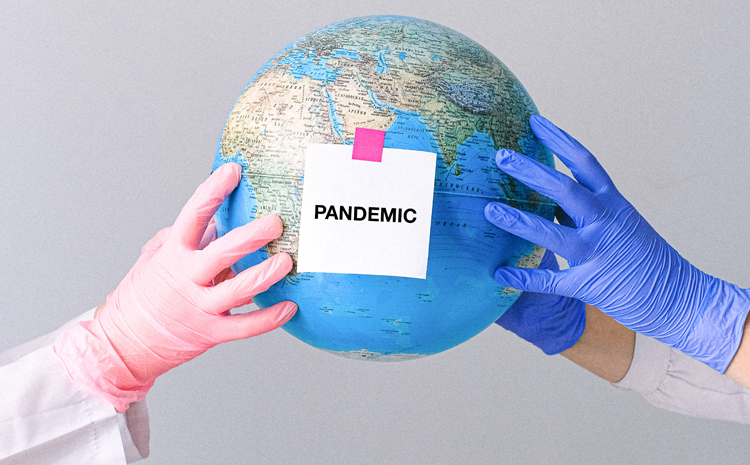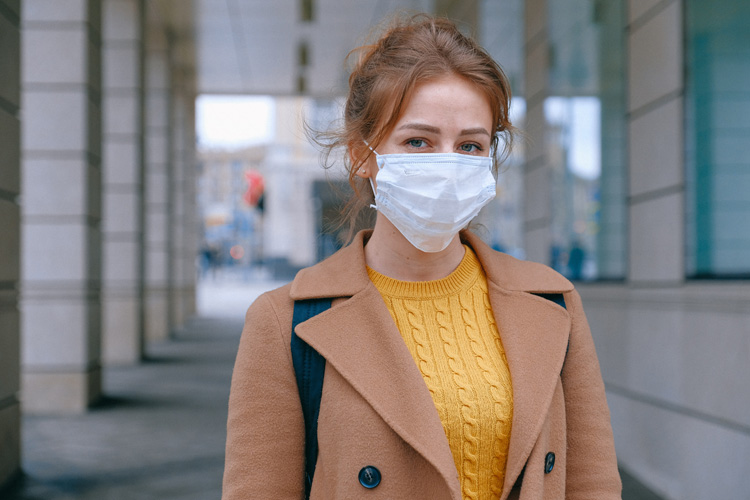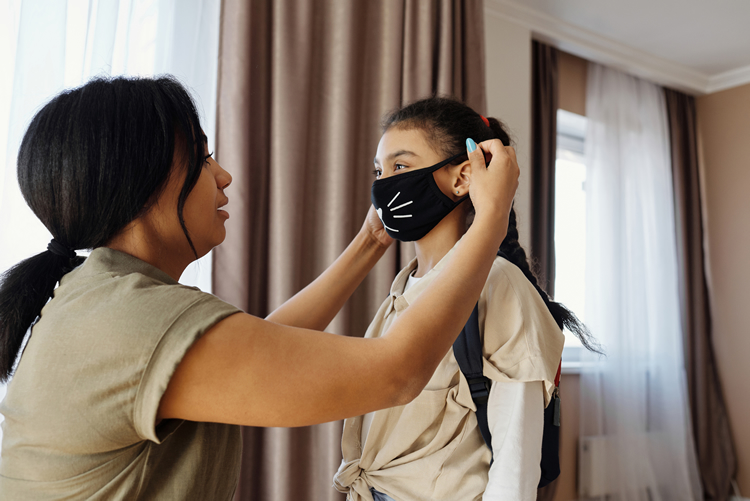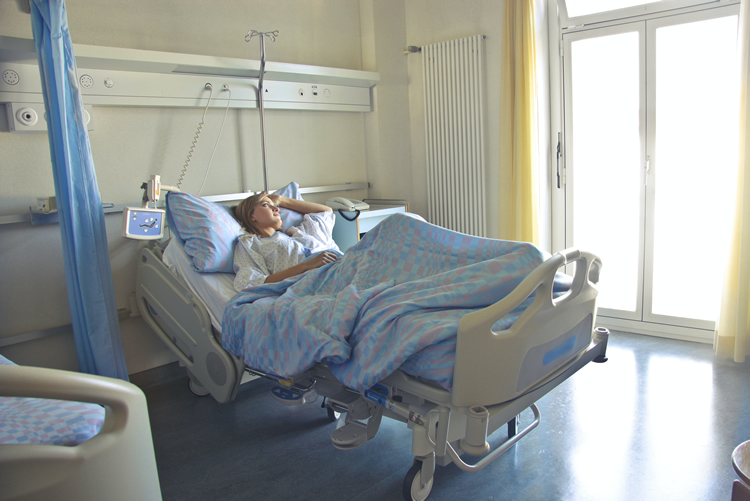Lyme disease infects an estimated hundreds of thousands of U.S. residents each year.
Could the COVID epidemic further overshadow Lyme disease diagnoses? That is the question being asked. Each year in the United States, there are approximately 30,000 confirmed cases of Lyme. The problem with Lyme has always been difficulty in early diagnosis. So much so, that the CDC believes that actual cases of Lyme could be ten times the number of confirmed annual cases. And experts now believe that it could be missed more frequently in the wake of the coronavirus epidemic.

We are all weary of COVID and Lyme disease too.
It goes without saying that we are all weary of this worldwide pandemic. It has affected every aspect of life imaginable. From schooling our children, to working at home, to job loss – coronavirus has been detrimental to us all in some way. As of the date of this writing, the United States has had 47.5mm confirmed cases, Massachusetts accounting for 888,000 of those. It’s been front-page news since March 2020. COVID-19 has overshadowed everything for the better part of two years, including other medical diagnoses.
Are cancer and Lyme disease taking a backseat to COVID?
Many illnesses are being missed for a variety of reasons. One critical element in this overshadowing is that some people are afraid to go to the doctor. The fact that medical facilities are potentially filled with COVID-19 patients has caused this hesitancy. The American Cancer Society reported a substantial drop in cancer screenings. Since we have been hesitant to partake in elective health practices, many illnesses are not being caught in the early stages, including Lyme disease.
Increased tick bite risk weighs into the equation also.
Many families have opted not to travel for the last couple of years, and have set out to enjoy time together in alternative settings, such as the great outdoors. More time out in nature leads to better odds of getting a tick bite, thereby increasing the odds of contracting tick-borne illnesses.
Lest we forget the “great imitator.”
Lyme infection can imitate other illnesses. If we a little sick, we might chalk it up to the common cold. If we feel really sick, we might believe we have the flu. Lyme is not always a front-and-center consideration, because we can have a tick attached for days without even knowing it. And while many Lyme sufferers get the bull’s eye rash, an estimated 20 to 40% of patients never get a rash at all. People, who have Lyme disease, might not know it for years.
Lyme prevention is the answer.
 As with COVID-19, we must take preventive measures in order to lower our chances of contracting Lyme disease. Unlike COVID-19, there is no Lyme vaccine for humans. Our prevention methods rely on tick bite prevention. The most important elements of prevention are personal tick protection and professional tick control. Contrary to popular belief, ticks can still bite in the fall and winter. Therefore, we must enlist tick control around our homes all year long. That means barrier tick treatment spray in the spring, summer and fall; and tick tubes in the late fall through winter.
As with COVID-19, we must take preventive measures in order to lower our chances of contracting Lyme disease. Unlike COVID-19, there is no Lyme vaccine for humans. Our prevention methods rely on tick bite prevention. The most important elements of prevention are personal tick protection and professional tick control. Contrary to popular belief, ticks can still bite in the fall and winter. Therefore, we must enlist tick control around our homes all year long. That means barrier tick treatment spray in the spring, summer and fall; and tick tubes in the late fall through winter.



 As experts scramble to unravel the mystery of persistent symptoms of coronavirus, the Global Lyme Alliance is reaching out to these new long haulers. As with chronic Lyme disease, the common perception is that once you treat the illness, you are cured. Chronic sufferers of COVID-19 will likely be met with some misunderstanding, but a light is being shone on their suffering. If you search online or watch the news, you will see their stories. There is a active push for awareness, and even more incentive for us to protect ourselves. Doctors are working to treat long haulers, and one could assume that the overall awareness and acceptance of the phenomenon will offer hope to chronic Lyme disease patients, who seek acceptance and effective treatment. The idea that a negative test does not mean that the infection did not leave lasting effects could eventually become a thing of the past. Those suffering chronic Lyme could find new hope in no longer being dismissed by their families, friends, and even medical professionals. There could be a time in the near future, when persistent Lyme symptoms are taken seriously, and this is great news if you suffer from these symptoms.
As experts scramble to unravel the mystery of persistent symptoms of coronavirus, the Global Lyme Alliance is reaching out to these new long haulers. As with chronic Lyme disease, the common perception is that once you treat the illness, you are cured. Chronic sufferers of COVID-19 will likely be met with some misunderstanding, but a light is being shone on their suffering. If you search online or watch the news, you will see their stories. There is a active push for awareness, and even more incentive for us to protect ourselves. Doctors are working to treat long haulers, and one could assume that the overall awareness and acceptance of the phenomenon will offer hope to chronic Lyme disease patients, who seek acceptance and effective treatment. The idea that a negative test does not mean that the infection did not leave lasting effects could eventually become a thing of the past. Those suffering chronic Lyme could find new hope in no longer being dismissed by their families, friends, and even medical professionals. There could be a time in the near future, when persistent Lyme symptoms are taken seriously, and this is great news if you suffer from these symptoms. Knowing that Lyme disease can be just as life-altering as COVID-19, it is imperative that we keep ourselves protected from tick bites. The best way to prevent Lyme infection is to eliminate ticks from your yard. Reputable tick control companies offer ultimate protection with
Knowing that Lyme disease can be just as life-altering as COVID-19, it is imperative that we keep ourselves protected from tick bites. The best way to prevent Lyme infection is to eliminate ticks from your yard. Reputable tick control companies offer ultimate protection with 




 Even before the coronavirus health crisis arrived, informed Central Mass residents understood the threat of Lyme disease. With exploding tick populations, we see higher infection rates each year. During the health crisis, we must be vigilant in our efforts to prevent our infection and the infection of others while in public places. At home, we must be vigilant about effective
Even before the coronavirus health crisis arrived, informed Central Mass residents understood the threat of Lyme disease. With exploding tick populations, we see higher infection rates each year. During the health crisis, we must be vigilant in our efforts to prevent our infection and the infection of others while in public places. At home, we must be vigilant about effective 

 It stands to reason that this study will reveal a higher amount of tick-borne illnesses in the U.S. during the COVID-19 crisis. While the medical community works to control, cure, and prevent the spread of COVID-19, we must remember that tick-borne illnesses have been an ongoing battle in Central Mass for decades.
It stands to reason that this study will reveal a higher amount of tick-borne illnesses in the U.S. during the COVID-19 crisis. While the medical community works to control, cure, and prevent the spread of COVID-19, we must remember that tick-borne illnesses have been an ongoing battle in Central Mass for decades.